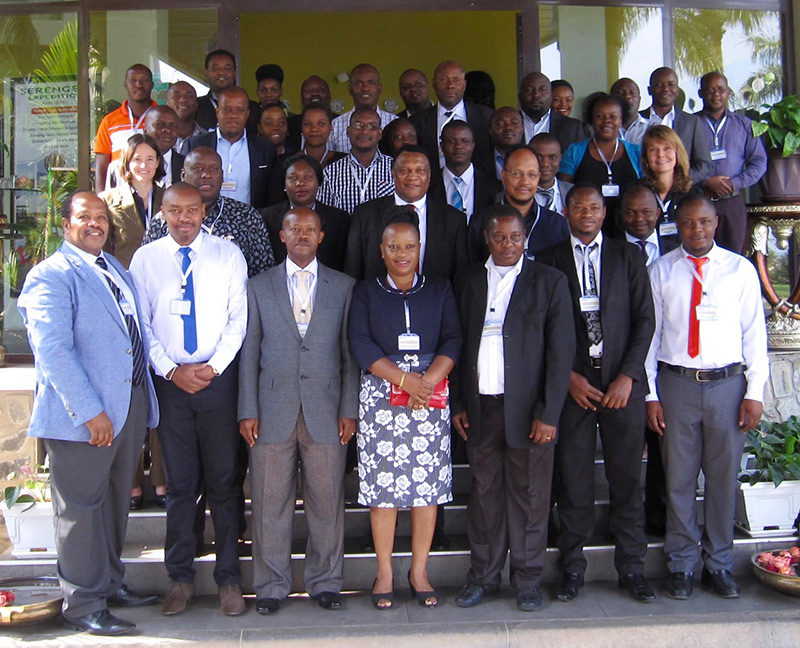Illegal Wildlife Trade
The IUCN-ELC participated in a wildlife crime training workshop in Mwanza, Tanzania from the 16th to 19th January 2018 that was organised through the support of our major partners in the illegal wildlife trade initiative AWF, TRAFFIC, GIZ and USAID [PROTECT].The theme of this workshop was entitled “Wildlife Judicial and Prosecutorial Assistance Training: Strengthening Legal Mechanisms to Combat Wildlife Crime”.

Wildlife crime training workshop in Mwanza, Tanzania, 16 -19 January 2018
Photo: IUCN ELC
The target audience for this workshop were judges, magistrates and prosecutors of the Tanzanian judiciary. There were over 40 participants in attendance. We were grateful to have the Director of Public Prosecutions (DPP) as one of the attendees as well as two High Court judges sitting at the Mwanza and Dodoma High Court. We were also grateful for the attendance of the magistrates and prosecutors from various work stations in Tanzania who sacrificed their time to make it to the workshop.
In the course of the workshop IUCN had the opportunity to present its report on wildlife cases in Tanzanian Courts with the aim of providing information to strengthen the judicial chain with regards to wildlife legislation. Tanzania is a country of prime concern in as far as the transit of illegal ivory and rhino horn is concerned. This has been attributed to persistent weakness in the laws governing wildlife crime along with poor implementation and low levels of compliance. This issue was seriously discussed at the workshop where it was suggested that Tanzania could review some of its legislation relating to wildlife crime like inter alia Economic and Organised Crime Control Act (EOCCA), Wildlife Conservation Act (WCA) among others.
One suggestion was to have clear sentencing guidelines when prosecuting wildlife crime offenders; the kingpins of illegal wildlife trade should not be handed the same sentence as small scale offenders. Procedural obstacles to prosecute like the requirement of the need to get the DPPs Consent and Certificates before prosecuting a wildlife crime offender were also noted by the participants to be a major impediment when it comes to prosecuting wildlife offenders. During the workshop it was also observed that Tanzania lacks a forensic lab to conduct DNA analysis for wildlife products and this poses a great challenge to the investigating and prosecuting agencies.
IUCN also had the opportunity to showcase and educate the various legal actors in Tanzania’s judiciary about WILDLEX which is an online portal on wildlife related law developed by IUCN; whose purpose is to inter alia build capacity worldwide by providing free and easy access to wildlife related legislation and case law, through employing modern technology. The WILDLEX database focuses on cases collected from Tanzania as a starting point and will be progressively populated with data and information from other countries in the region.



